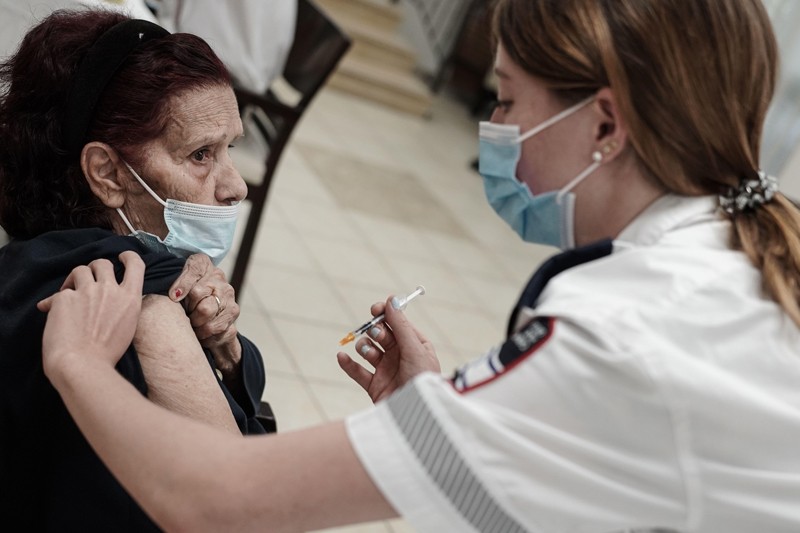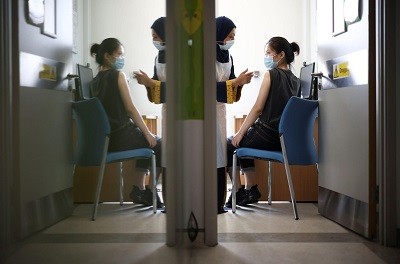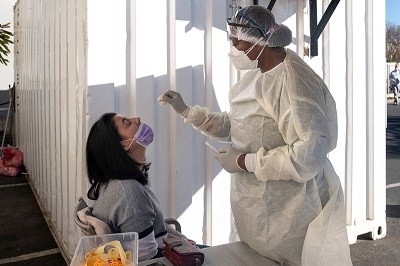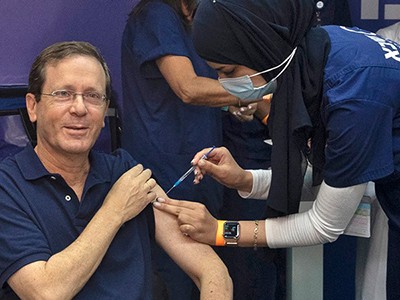The World Health Organization (WHO) has called for a moratorium on COVID-19 boosters until the end of next month, with the aim of ensuring that at least 10% of people in all countries are vaccinated before extra doses are handed out. It makes a compelling argument. As Nature went to press, 58% of people in high-income countries had received at least one vaccine dose; in low-income countries this number stood at just 1.3%.
Moreover, the case for boosters has not yet been proved. Most COVID-19 vaccines currently in use remain extremely effective months after administration, particularly against severe disease and death. In a period of vaccine scarcity, the choice to dole out boosters must be guided by evidence of benefit, and consideration given to the cost of delaying the delivery of vaccines to vulnerable people and health-care workers in other countries. So far, there is little evidence that boosters are needed to protect the fully vaccinated.
Sadly, many countries are moving ahead with boosters regardless. Israel has begun giving third doses of Pfizer’s mRNA vaccine to people over 50 and other vulnerable groups. France, Germany, the United Kingdom and the United States are all planning to provide boosters to certain groups. In the United States, more than one million people have managed to get an unauthorized third dose.
In some cases, boosters might be warranted — if the evidence suggests that the usual doses aren’t effective, for example. One study of people who have had an organ transplant, meaning they need to take drugs that suppress the immune system, found that almost half had no antibody response after two doses of mRNA vaccines (B. J. Boyarsky et al. JAMA 325, 2204–2206; 2021).
Boosters might also be needed if vaccines made from inactivated viral particles, namely those from the Chinese manufacturers Sinopharm and Sinovac, are found to provide inadequate protection against severe disease or death from variants such as Delta. A surge of COVID-19 in Indonesia that has affected many health-care workers fully vaccinated with Sinovac, and surges in other countries reliant on Sinovac’s shot, have led officials to consider boosters using other vaccines — even though vaccines are far from the only factor implicated in rising disease rates.
All other vaccines currently in use seem to be more than 90% effective against hospitalization and death from COVID-19. Although some studies have found that vaccine-induced antibody levels wane after several months, this is typical for all vaccines and not necessarily indicative of waning protection against the coronavirus.
Scientists don’t yet know how much extra protection a booster shot might confer against disease, or for how long any boost will last. However, on average, an unvaccinated person exposed to the coronavirus is much more likely both to be infected and to spread that infection than is a vaccinated individual. Moreover, they are more than 90% more likely to be hospitalized or die from the disease. Choosing an unknown but potentially incremental benefit for a person in a wealthy country over a massive, life-saving one for a person elsewhere in the world is a losing strategy, because new variants will inevitably arise in places where the spread of COVID-19 continues unabated.
Instead of offering boosters to large swathes of people, wealthier nations need to be more active in getting the world vaccinated — and there are several ways to do this.
First, rich countries must come through on promises to support COVAX, the international alliance supplying vaccines to low-income countries. It remains short on its modest goal to vaccinate the most vulnerable 20% of populations by the end of 2021.
However, global vaccine availability is limited — and will only become more so if boosters become commonplace — so vaccine donations alone won’t suffice. Leaders of countries whose companies have benefited from public funds — such as BioNTech in Germany and Moderna in the United States — should use their clout to expand manufacturing. Many more wealthy nations need to support a proposal led by India and South Africa — that has the United States’ backing — for a temporary waiver on vaccine patents.
These deals must be matched by funds to get new manufacturers up and running quickly and safely, along with financing for countries to allow them to purchase vaccine doses and distribute them to their populations. Typically, this process occurs over years or even decades, but time is crucial in a pandemic — and needs are vast. Patent waivers won’t solve the problem alone; neither will vaccine donations or a temporary moratorium on boosters. The world must push on all fronts simultaneously.
Allowing COVID-19 to spread in low and lower-middle-income countries — where, overall, fewer than 15% of people are vaccinated — could result in millions of people dying or facing long-term complications from severe COVID-19. Economies will erode as businesses and schools remain closed. And surging COVID-19 levels will foster the evolution of new variants that could be yet more transmissible than Delta, deadlier than existing strains or able to evade the immune response. Last month, the International Monetary Fund warned that highly infectious variants could derail economic recovery around the world, and wipe US$4.5 trillion from global gross domestic product by 2025.
If vaccines were not scarce, boosters would be less controversial. But to focus on boosters when more than half the world lacks vaccine doses is short-sighted and will only keep the pandemic burning longer. For wealthy countries, this strategy means they will be indefinitely chasing their tails in terms of new variants. And for the rest of the world, it means prolonging unnecessary suffering.
"who" - Google News
August 17, 2021 at 09:09PM
https://ift.tt/3AG8TVg
The WHO is right to call a temporary halt to COVID vaccine boosters - Nature.com
"who" - Google News
https://ift.tt/36dvnyn
https://ift.tt/35spnC7
Bagikan Berita Ini


















0 Response to "The WHO is right to call a temporary halt to COVID vaccine boosters - Nature.com"
Post a Comment